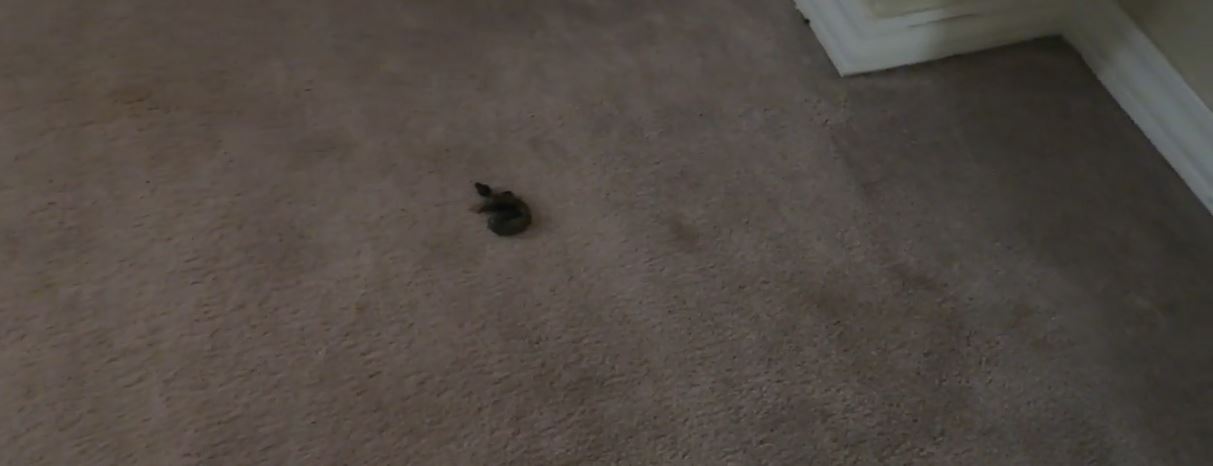Wild Animal Feces

Wild animal feces may not be a pleasant subject, but they are important to know about. You can learn a great deal about the animals on your property based on the feces or other waste that you find. This frequently gives you the ability to identify which wild animal is scratching or making holes in your home or ruining your garden even if you haven't caught a glimpse of him in the act. In addition to being a useful tool for identifying animals, their feces can pose a danger, meaning it is important to clean them up as soon as you can to prevent the spread of disease.
Identifying The Feces
There are few general rules you can use to help you identify the wild animal feces on your lawn. Large piles of scat will belong to larger animals, while smaller piles tend to be from small animals. You will need to pay attention to the shape and color of the waste as well as the pile itself. Generally speaking, herbivores have scat that is small and round while carnivores have cylindrical feces. Carnivores will also have darker scat, frequently with fur. The color of herbivore scat will vary and you may see the occasional small plant piece.
You can also examine the pile's shape. Birds and deer tend to leave feces while moving, so their waste will be in a long trail. If the animal sleeps in a specific spot, like a bear (which shouldn't be near your home), then they will typically have larger piles since they eliminate in a particular spot that isn't next to their den.
There are several general categories of droppings that can also help you narrow down which animal is on your property. Amphibians, birds, and reptiles all leave white droppings, while most other animals will leave dark brown, dark gray, or black droppings. If there are small tubular droppings, they are probably from a bat or rodent, like mice or rats. If they are large tubular, they are probably from felines (a house cat or bobcat), canines (dogs, foxes, or coyotes), or geese (if they are green). Pellets may be from deer, llamas, or elk. To identify the animal feces with certainty, you can either check a photo guide or consult a professional.
What Does Its Presence Mean?
There are two possible meanings behind the presence of animal feces: the animal may have been passing through your property or may have taken up residence there. To tell the difference, you will need to consider the number of droppings and the size of piles. In either case, it would be helpful to take steps to prevent the wild animals from coming back onto your property or entering your home.
What Diseases Can It Carry?
In addition to the foul odor, wild animal feces come with a risk of disease. Toxoplasmosis is one of these conditions, and it typically comes from feline scat. This condition usually doesn't have many symptoms, instead acting similar to flu. If you have a weakened immune system, however, you may have muscle pains and aches for a while and it is fatal in rare cases.
Some wild animals will also have Campylobacter in their feces, which can lead to gastrointestinal symptoms that are typically mild. Salmonella may also be found in animal feces and it typically causes a severe gastrointestinal infection. Giardia is a microscopic parasite in some wild animal feces that can lead to upset stomach, stomach cramps, and watery diarrhea.
If the animal in question is a raccoon, their feces may contain raccoon roundworms. These pests are infectious and very challenging to kill. The symptoms range based on where in the body the roundworms are, but they may include fatigue, nausea, an enlarged liver, or even symptoms related to brain infection. LCM (lymphocytic choriomeningitis) is found in mouse feces (as well as urine and saliva) and infects people when inhaled. This may lead to fever, muscle and headaches, loss of appetite, nausea, and symptoms of meningitis or encephalitis. Most people recover from this condition completely.
Histoplasmosis is spread through bat feces, known as guano. This fungal infection grows won't always cause symptoms, but if it does, they are typically mild and flu-like, although those with weakened immune systems may have more severe infections.
How To Safely Clean The Feces
Because of the dangers associated with wild animal feces, as well as their smell, it is important to clean them up right away. You should wear protective gear that includes a respirator and gloves at the very least. Collect the large droppings and try vacuuming up the smaller ones if possible. You should also disinfect the section of your lawn that had the feces. If this seems to complicated for you, you can choose to hire a professional as they should have the experience and supplies to quickly and safely remove the wild animal feces.
Read the Pest Wildlife Home Page page for helpful information and to learn more about Wild Animal Feces

